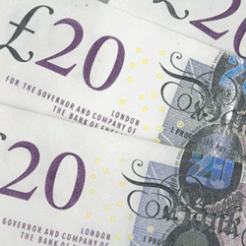The end of political instability in Westminster does not necessarily spell good news for the economy or for sterling, as the Bank of England warns of continued inflation and analysts predict a sluggish pound.
While initial reaction to David Cameron moving in to Number 10 Downing Street last night has been neutral to positive on the currency markets, the newfound political stability was countered by some downbeat predictions from the central bank.
The Bank of England inflation report, released today, predicts inflation remaining high for the remainder of the year – at above 2 per cent – and warns that the economic recovery in the country could be hampered by government spending cuts.
“The financial crisis is far from over,” warned BoE governor Mervyn King in his statement accompanying the report. “Recent events in Europe show that we are only part-way through the financial crisis that began three years ago. Extraordinary measures have been taken to alleviate the worst of the symptoms, but the underlying problems will take longer to resolve, both at home and internationally.”
Charles Purdy, director of Smart Currency Exchange, also warned that the medium-term outlook is not totally rosy.
Against the euro, there are some positive signs for sterling since last night’s election. “Given ongoing problems in the euro zone where the rescue package announced last weekend seemed by many to be an effort to paper over the cracks and some fundamental problems still needing to be resolved, sterling could start to gain especially if this coalition government does have the willpower to sort out the deficit,” said Purdy.
However, he warned that the pound may not be so strong against other currencies.
“Against currencies such as the US dollar and the commodity-backed currencies such as the Australian and Canadian dollars, sterling could continue to weaken as they are ahead of us in their economic recovery," he added.









